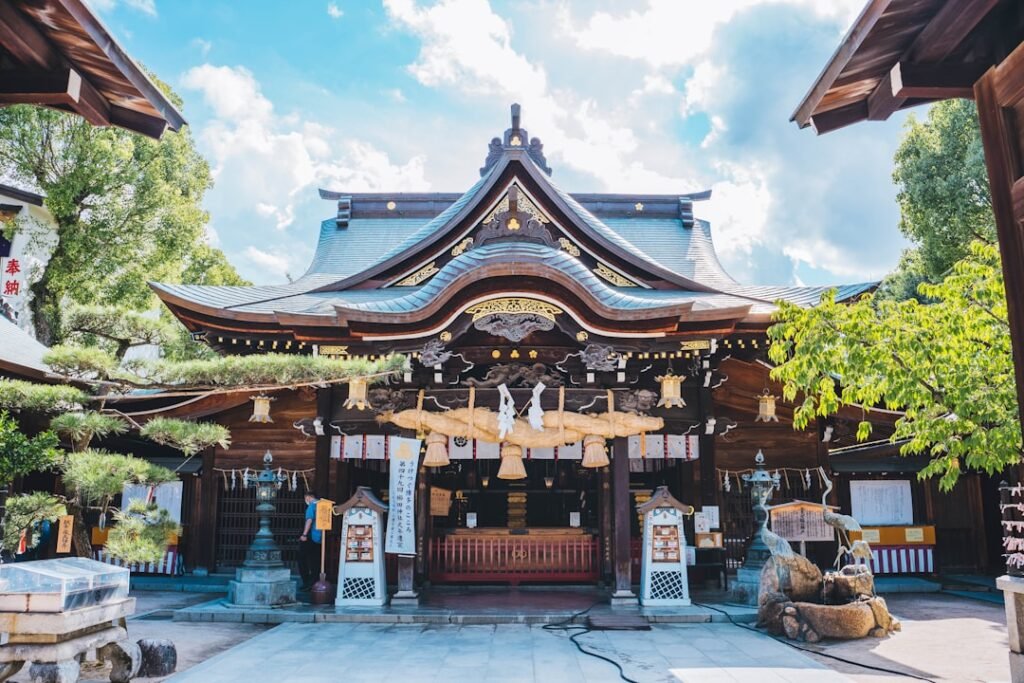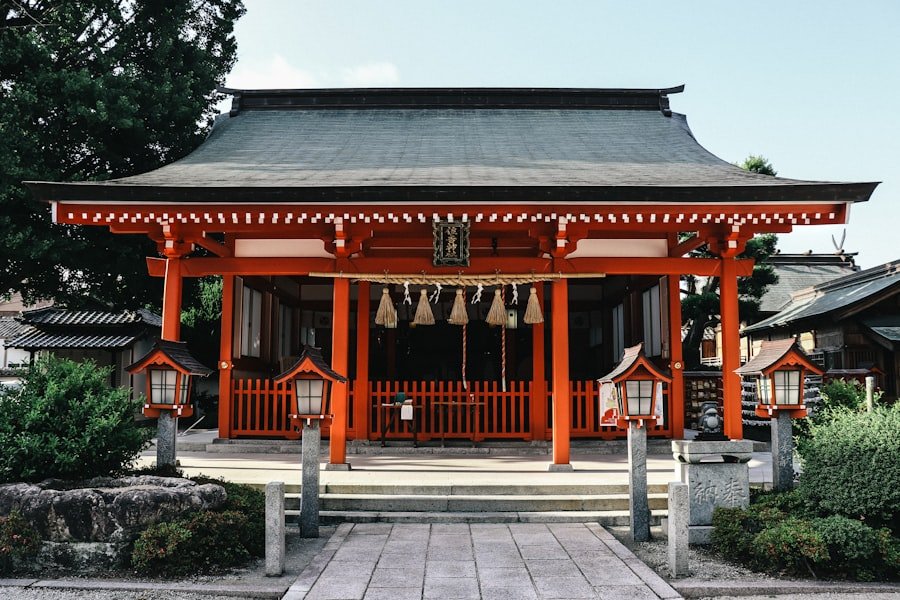

A Guide to Talking About Your Hobbies and Interests in Japanese
Engaging in conversations about hobbies and interests is a delightful way to connect with others, and this holds true in any language, including Japanese. The ability to discuss personal passions not only enriches social interactions but also provides insight into cultural nuances. In Japan, where community and shared experiences are highly valued, talking about hobbies can serve as a bridge to deeper relationships.
Whether you are a language learner or someone looking to immerse yourself in Japanese culture, understanding how to articulate your interests can significantly enhance your conversational skills. In this article, we will explore various aspects of discussing hobbies and interests in Japanese. From common phrases to cultural references, we will equip you with the tools necessary to express yourself effectively.
By the end of this guide, you will feel more confident in initiating conversations about your hobbies and engaging with others on topics that matter to you. Learn Japanese at the Norwegian Language School.
Table of Contents
ToggleSummary
- Japanese people often use hobbies and interests as a way to connect with others and build relationships.
- Common phrases for discussing hobbies in Japanese include “shumi” (interest) and “hobby” (hobby).
- To express likes and dislikes in Japanese, you can use phrases like “suki desu” (I like) and “kirai desu” (I dislike).
- When discussing hobbies in different settings, it’s important to use the appropriate level of politeness and formality in language.
- Using Japanese cultural references can enhance conversations about hobbies and interests, showing a deeper understanding and appreciation for the culture.
Common Japanese Phrases for Discussing Hobbies
When it comes to discussing hobbies in Japanese, familiarity with certain phrases can make a world of difference. One of the most fundamental expressions is “趣味は何ですか?” (Shumi wa nan desu ka?), which translates to “What are your hobbies?” This simple question opens the door for dialogue and invites others to share their interests. Additionally, you might respond with “私の趣味は…” (Watashi no shumi wa…), meaning “My hobby is…”, followed by the specific activity you enjoy.
Another useful phrase is “よく…をします” (Yoku… o shimasu), which means “I often do…”. This can be used to elaborate on your hobbies, such as “よく読書をします” (Yoku dokusho o shimasu) for “I often read books.” These phrases not only help you convey your interests but also encourage others to reciprocate, fostering a more engaging conversation.
How to Express Likes and Dislikes in Japanese

Expressing likes and dislikes is crucial when discussing hobbies, as it allows you to convey your preferences clearly. In Japanese, the phrase “好きです” (suki desu) means “I like,” while “嫌いです” (kirai desu) translates to “I dislike.” For example, if you enjoy painting, you could say “絵を描くのが好きです” (E o kaku no ga suki desu), meaning “I like painting.” Conversely, if you are not fond of a particular activity, you might say “サッカーが嫌いです” (Sakkā ga kirai desu), meaning “I dislike football.” It is also helpful to use the phrase “あまり…” (amari…) when expressing a mild dislike or indifference. For instance, “あまり映画を見ません” (Amari eiga o mimasen) means “I don’t watch movies much.” This nuanced approach allows for a more comprehensive discussion about your interests and helps others understand your preferences better.
Discussing Hobbies and Interests in Different Settings
The context in which you discuss hobbies can greatly influence the language and tone you use. In formal settings, such as business meetings or academic environments, it is essential to maintain a level of politeness. Using phrases like “趣味についてお話ししてもよろしいでしょうか?” (Shumi ni tsuite ohanashi shite mo yoroshii deshō ka?), meaning “May I talk about my hobbies?” demonstrates respect for the audience and sets a courteous tone for the conversation.
Conversely, in casual settings with friends or peers, you can adopt a more relaxed approach. You might simply say “最近、何か趣味ある?” (Saikin, nanika shumi aru?), which translates to “Do you have any hobbies lately?” This informal style encourages a friendly exchange and allows for a more spontaneous discussion about shared interests.
Polite and Casual Language for Talking About Hobbies
Understanding the difference between polite and casual language is vital when discussing hobbies in Japanese. In formal situations, using keigo (敬語), or respectful language, is expected. For instance, instead of saying “好き” (suki), you might use “好ましい” (konomashii) to express your fondness for something in a more refined manner.
Similarly, when asking someone about their hobbies, using the polite form “趣味は何でいらっしゃいますか?” (Shumi wa nan de irasshaimasu ka?) shows respect and consideration. In contrast, casual conversations allow for more straightforward expressions. You can use slang or colloquial terms that resonate with younger audiences.
For example, saying “ゲームが好き!” (Gēmu ga suki!) for “I love games!” is perfectly acceptable among friends. Mastering both forms of language will enable you to navigate various social situations with ease.
Using Japanese Cultural References in Hobbies and Interests Conversations

Incorporating cultural references into discussions about hobbies can enrich your conversations and demonstrate your understanding of Japanese culture. For instance, if you enjoy anime or manga, mentioning popular titles like “進撃の巨人” (Shingeki no Kyojin) or “ワンピース” (One Piece) can spark lively discussions with fellow enthusiasts. Similarly, if you are passionate about traditional arts such as tea ceremony (茶道, sadō) or calligraphy (書道, shodō), sharing your experiences can lead to deeper conversations about cultural practices.
Moreover, referencing seasonal activities can also enhance your discussions. For example, talking about hanami (花見), the tradition of cherry blossom viewing in spring, or discussing summer festivals (夏祭り, natsu matsuri) can evoke shared memories and experiences among your conversation partners. These cultural touchpoints not only make your discussions more engaging but also help build connections based on shared interests.
Tips for Engaging in Conversations About Hobbies and Interests in Japanese
To effectively engage in conversations about hobbies and interests in Japanese, it is essential to be an active listener. Show genuine interest in what others have to say by asking follow-up questions or expressing curiosity about their experiences. Phrases like “それは面白いですね!” (Sore wa omoshiroi desu ne!) meaning “That’s interesting!” can encourage further dialogue and demonstrate that you value their input.
Additionally, don’t hesitate to share personal anecdotes related to your hobbies. This not only makes the conversation more relatable but also invites others to share their stories. For instance, if someone mentions their love for hiking, you might respond with a personal experience about a memorable hike you took.
This exchange of stories fosters a sense of camaraderie and makes the conversation more enjoyable for everyone involved.
Expressing Passion and Enthusiasm for Your Hobbies in Japanese
When discussing your hobbies, conveying passion and enthusiasm can significantly enhance the impact of your words. In Japanese, using expressive language can help communicate your excitement effectively. Phrases like “本当に大好きです!” (Hontō ni daisuki desu!) meaning “I really love it!” or “夢中になっています!” (Muchū ni natteimasu!) which translates to “I’m really into it!” can vividly express your enthusiasm.
Moreover, using exclamatory phrases such as “最高です!” (Saikō desu!) meaning “It’s the best!” can further emphasise your feelings towards a particular hobby. By articulating your passion in this way, you not only engage your listeners but also inspire them to share their own enthusiasm for their interests.
Asking Others About Their Hobbies and Interests in Japanese
Asking others about their hobbies is an excellent way to foster connections and learn more about their personalities. In addition to the basic question “趣味は何ですか?” (Shumi wa nan desu ka?), consider using more specific inquiries that show genuine interest. For example, asking “最近、どんな趣味を始めましたか?” (Saikin, donna shumi o hajimemashita ka?) translates to “What new hobbies have you started recently?” This question encourages others to share their latest interests and experiences.
Furthermore, if someone mentions a hobby that intrigues you, don’t hesitate to ask for more details. Phrases like “それについてもっと教えてください” (Sore ni tsuite motto oshiete kudasai) meaning “Please tell me more about that” can lead to deeper discussions and demonstrate your eagerness to learn from them.
Discussing Popular Hobbies and Interests in Japanese Culture
Japanese culture boasts a rich tapestry of hobbies and interests that reflect its unique traditions and modern influences. Popular pastimes include activities such as karaoke (カラオケ), where friends gather to sing their favourite songs together, or participating in sports like baseball (野球, yakyū), which holds a special place in the hearts of many Japanese people. Discussing these activities can provide common ground for conversation and allow for shared experiences.
Additionally, traditional arts such as ikebana (生け花), the art of flower arrangement, or origami (折り紙), the art of paper folding, are also cherished hobbies that many people enjoy. Engaging in conversations about these cultural practices not only highlights your interest in Japan but also opens up opportunities for learning more about its history and significance.
Conclusion and Recap of Key Phrases and Strategies for Talking About Hobbies in Japanese
In conclusion, discussing hobbies and interests in Japanese is an enriching experience that fosters connections and deepens understanding of cultural nuances. By mastering common phrases such as “趣味は何ですか?” (Shumi wa nan desu ka?) and expressing likes and dislikes with clarity through phrases like “好きです” (suki desu) or “嫌いです” (kirai desu), you will be well-equipped to engage in meaningful conversations. Remember the importance of context when choosing between polite and casual language, as well as the value of incorporating cultural references into your discussions.
Active listening and sharing personal anecdotes will further enhance your interactions while expressing passion through enthusiastic language will leave a lasting impression on your conversation partners. As you embark on this journey of exploring hobbies in Japanese, consider enrolling in courses at the NLS Norwegian Language School that offer tailored Japanese language instruction. These courses provide an excellent opportunity to refine your skills while immersing yourself in the rich tapestry of Japanese culture.
With dedicated practice and engagement, you’ll find yourself confidently navigating conversations about hobbies and interests in no time!
Ready to speak Japanese? Enroll for Japanese classes at the NLS Norwegian Language School!
If you want to learn Norwegian, you can register for classes here. We look forward to hearing from you and helping you become fluent in Norwegian.





